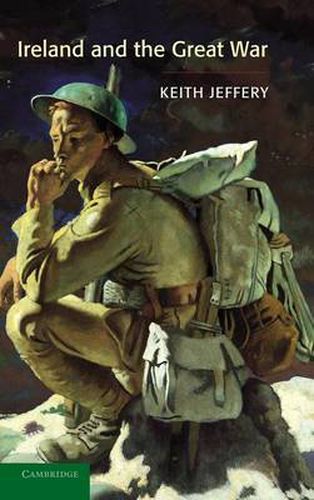Readings Newsletter
Become a Readings Member to make your shopping experience even easier.
Sign in or sign up for free!
You’re not far away from qualifying for FREE standard shipping within Australia
You’ve qualified for FREE standard shipping within Australia
The cart is loading…






This book explores the impact, both immediate and in its longer historical perspective, of the First World War upon Ireland across the broadest range of experience - nationalist, unionist, Catholic, Protestant - and in civilian social, economic and cultural terms, as well as purely military. Underscoring the work is a belief that the Great War is the single most central experience in twentieth-century Ireland and that the events of the war years, whether at home in Dublin during the Easter Rising or at the European battlefront, constitute a ‘seamless robe’ of Irish experience. The book also explores cultural responses to the war and its commemoration since 1918, up to the dedication of the Irish ‘Peace Tower’ in Belgium in November 1998. It argues that identifying and exploring the Irish Great War experience can contribute to the contemporary Irish peace process.
$9.00 standard shipping within Australia
FREE standard shipping within Australia for orders over $100.00
Express & International shipping calculated at checkout
This book explores the impact, both immediate and in its longer historical perspective, of the First World War upon Ireland across the broadest range of experience - nationalist, unionist, Catholic, Protestant - and in civilian social, economic and cultural terms, as well as purely military. Underscoring the work is a belief that the Great War is the single most central experience in twentieth-century Ireland and that the events of the war years, whether at home in Dublin during the Easter Rising or at the European battlefront, constitute a ‘seamless robe’ of Irish experience. The book also explores cultural responses to the war and its commemoration since 1918, up to the dedication of the Irish ‘Peace Tower’ in Belgium in November 1998. It argues that identifying and exploring the Irish Great War experience can contribute to the contemporary Irish peace process.